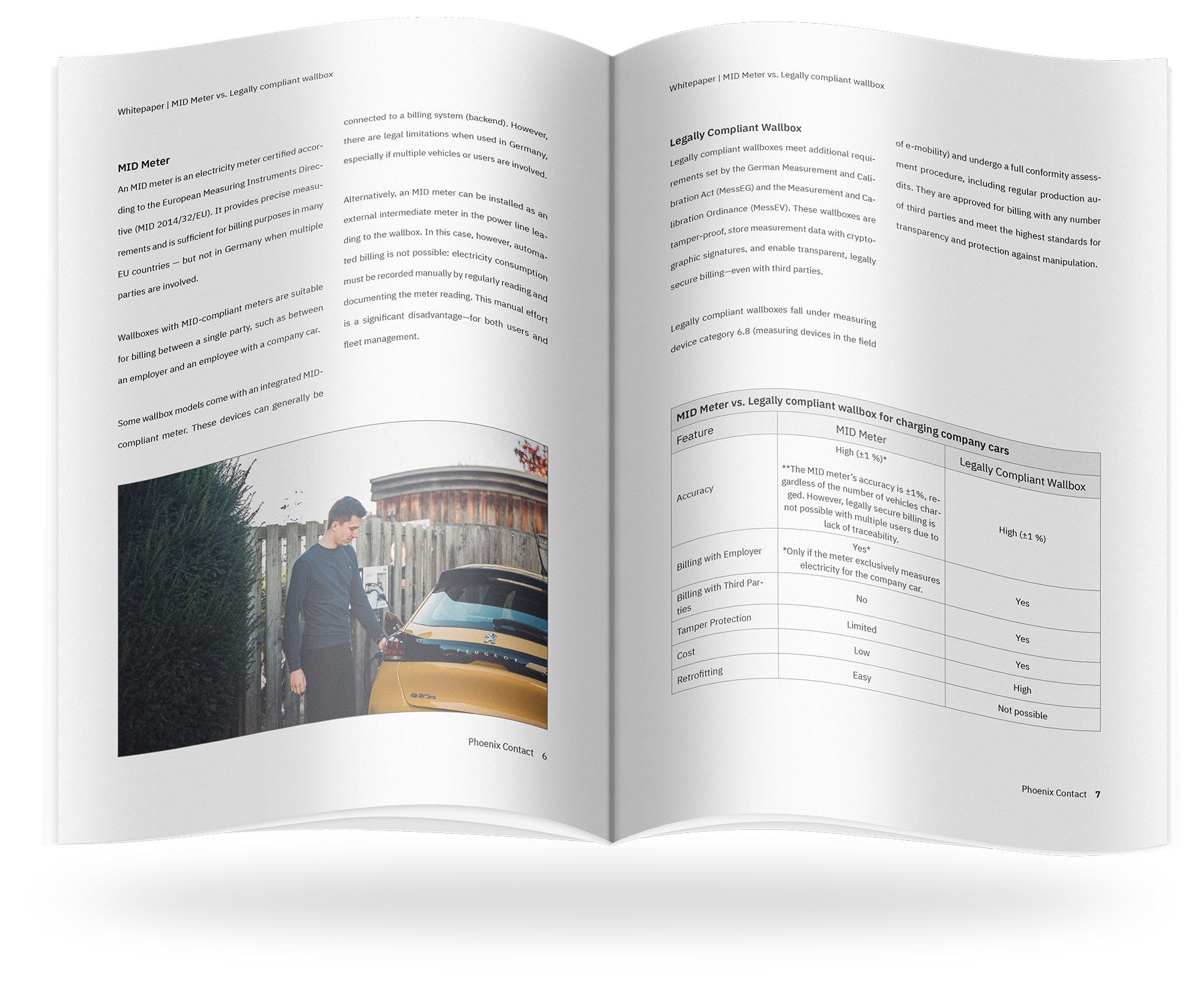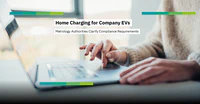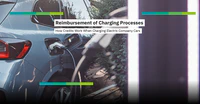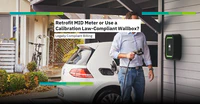Starting in 2026, new tax regulations will apply for charging company cars at private residences. The German Federal Ministry of Finance (BMF) has issued a directive abolishing the previous flat-rate system. In the future, either billing based on the exact kWh consumed or using a standardized electricity price will be permitted. Sounds like simplification for Germany – but what does this mean technically? The answer: Calibration law remains unchanged and continues to pose challenges.
Latest update from the metrology authorities (AGME, 09 January 2026)
At the beginning of 2026, Germany’s metrology authorities published additional technical guidance on home charging. They confirmed that a permanently installed MID‑compliant meter can be sufficient in clear one‑to‑one setups. Mobile MID meters integrated into charging cables, however, are explicitly excluded. You can find a detailed overview in the related post summarizing the latest AGME guidance .
What changes in 2026?
The previous monthly flat rates of €30 or €70 will be eliminated. Instead, the following options apply:
The amount of electricity charged must be verified via a separate meter – stationary or mobile, e.g., through the wallbox or the vehicle.
Alternatively, a standardized electricity price can be used. This is based on the average household electricity price (for 2026: approx. €0.34/kWh).
The BMF’s goal is transparent and traceable billing based on the actual amount of electricity charged. Here you can find the official letter [German] . We have already covered this topic in a blog post: New rules for company car reimbursement starting in 2026.
What remains unclear?
The directive does not address calibration requirements. For tax purposes, a separate meter is sufficient. However, for legally compliant billing to the employer, the requirements of the Measurement and Calibration Act (MessEG) still apply.
Feedback from the State Office for Measurement and Calibration NRW
We contacted the State Office for Measurement and Calibration NRW. Their response is clear:
The AGME directive from 2022 remains valid.
The requirements of the MessEG remain unchanged.
Technical requirements in detail:
For fixed allocation (1:1, one vehicle per wallbox), at least an MID-compliant meter is required.
For multiple vehicles or complex charging scenarios, calibration-compliant solutions are necessary.
Vehicle-internal measurement is currently not practical. As of now, no known vehicles meet the requirements of the MessEG.
We have summarized everything you need to know about calibration law in a separate article: Legally compliant charging at home .
Retrofitting with MID Meter, Legally Compliant Wallbox, or Charge Repay Service?
Discover your options for legally compliant billing of company car charging at home: When is retrofitting with an MID meter sufficient, when is a legally compliant wallbox required—and how does the Charge Repay Service bridge the gap without needing to replace your wallbox?
REQUEST WHITEPAPER
Challenges for companies
The tax regulation is clear. The technical implementation remains demanding. Without a calibration-compliant solution, companies risk:
Rejection of cost reimbursement by the employer
Risks during internal and external audits
Unclear legal situation for non-compliant measurements
Our recommendation for companies
Review your car policy and billing processes for 2026.
Decide whether you will use the standardized electricity price or exact kWh-based billing.
For kWh-based billing: Use solutions that meet MessEG requirements.
The Charge Repay Service offers a legally compliant solution for companies with multiple company cars. Existing wallboxes can be retrofitted regardless of manufacturer.
Conclusion
The directive from the Federal Ministry of Finance simplifies tax billing. Technical requirements remain in place. For legally secure implementation, compliance with the Measurement and Calibration Act is still essential.




